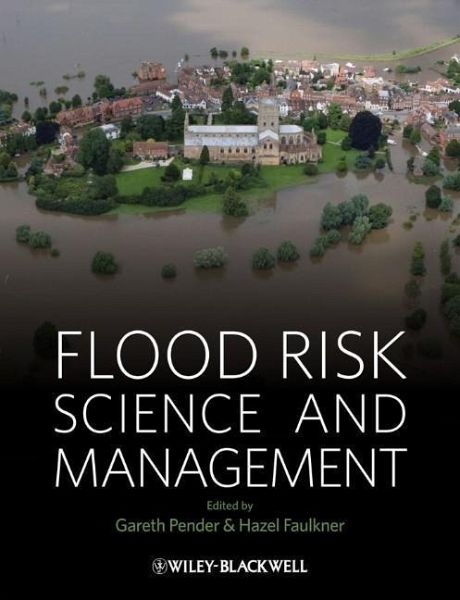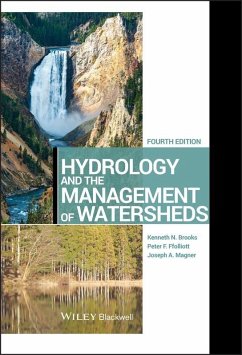
Flood Risk Science and Management (eBook, PDF)
Versandkostenfrei!
Sofort per Download lieferbar
239,99 €
inkl. MwSt.
Weitere Ausgaben:

PAYBACK Punkte
0 °P sammeln!
Approaches to avoid loss of life and limit disruption and damage from flooding have changed significantly in recent years. Worldwide, there has been a move from a strategy of flood defence to one of flood risk management. Flood risk management includes flood prevention using hard defences, where appropriate, but also requires that society learns to live with floods and that stakeholders living in flood prone areas develop coping strategies to increase their resilience to flood impacts when these occur. This change in approach represents a paradigm shift which stems from the realisation that co...
Approaches to avoid loss of life and limit disruption and damage from flooding have changed significantly in recent years. Worldwide, there has been a move from a strategy of flood defence to one of flood risk management. Flood risk management includes flood prevention using hard defences, where appropriate, but also requires that society learns to live with floods and that stakeholders living in flood prone areas develop coping strategies to increase their resilience to flood impacts when these occur. This change in approach represents a paradigm shift which stems from the realisation that continuing to strengthen and extend conventional flood defences is unsustainable economically, environmentally, and in terms of social equity. Flood risk management recognises that a sustainable approach must rest on integrated measures that reduce not only the probability of flooding, but also the consequences. This is essential as increases in the probability of inundation are inevitable in many areas of the world due to climate change, while socio-economic development will lead to spiralling increases in the consequences of flooding unless land use in floodplains is carefully planned. Flood Risk Science and Management provides an extensive and comprehensive synthesis of current research in flood management; providing a multi-disciplinary reference text covering a wide range of flood management topics. Its targeted readership is the international research community (from research students through to senior staff) and flood management professionals, such as engineers, planners, government officials and those with flood management responsibility in the public sector. By using the concept of case study chapters, international coverage is given to the topic, ensuring a world-wide relevance.
Dieser Download kann aus rechtlichen Gründen nur mit Rechnungsadresse in D ausgeliefert werden.













